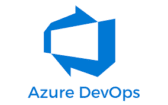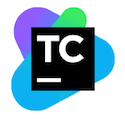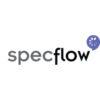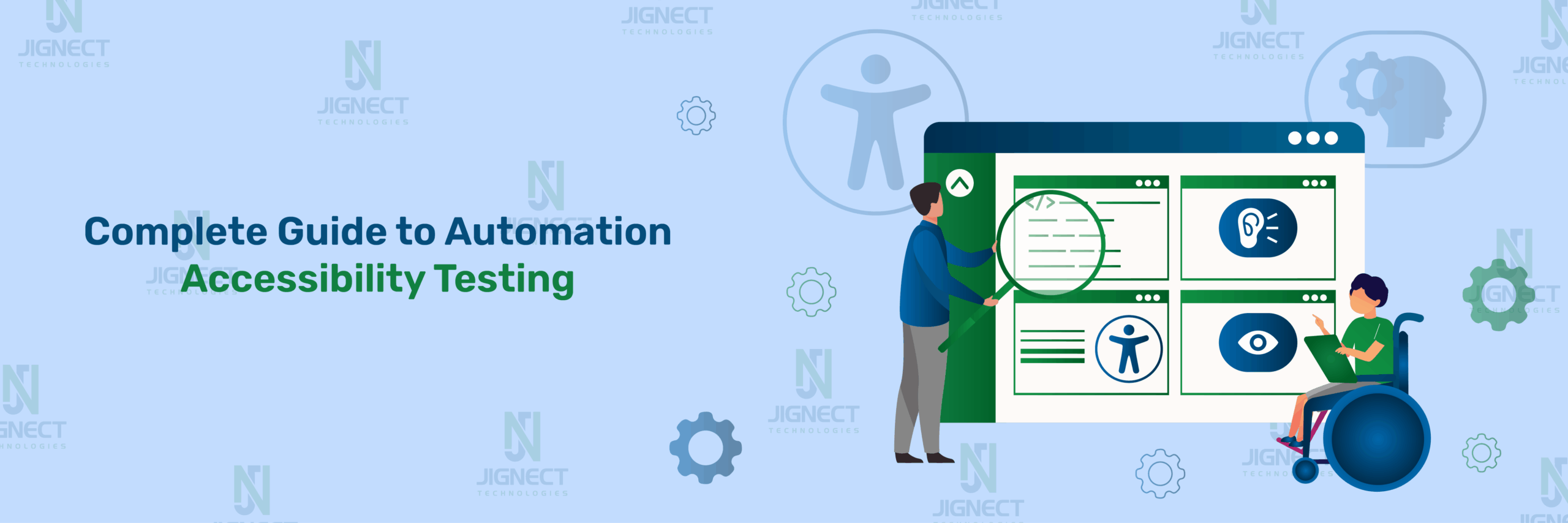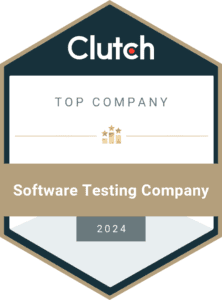Trusted by 50+ businesses across the globe
10 +
50 +
75 +
100 +










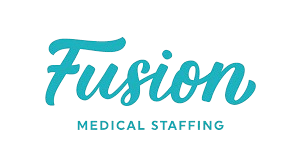





Quality Assurance (QA) / Testing Services
What is Functional Testing ?
Functional testing verifies that each function of the software application works in accordance
with the requirements and specifications.
It is not concerned with the source code of the application. Each functionality is tested by
providing test input, expecting output, and comparing actual output with expected output.
This testing checks the user interface, database, APIs, security, client or server application,
and functionality of the Application Under Test. Functional testing can be manual or automated.
Types
- Module testing
- Regression testing
- Integration testing
- System testing
What is Automation Testing ?
Automated Testing involves creating scripts and utilizing appropriate Automation Tools to test the software. It streamlines a Manual Process into an automated one, enabling the execution of repetitive tasks without manual intervention. It is used to automate testing tasks that are challenging to carry out manually. Automation tests can be scheduled at any time, utilizing scripted sequences to assess the software. These tests can input test data, compare expected and actual results, and produce detailed test reports. The objective of automation tests is to decrease the number of manual test cases, rather than completely replacing manual testing.
Types
- Automated UI Testing (Web, Mobile, Desktop, IoT)
- Automated API Testing
What is Performance Testing ?
Performance Testing is a software testing process used to evaluate the speed, response time, reliability, stability, scalability, and resource usage of a software application under a specific workload. It is crucial for detecting performance issues and ensuring the system can handle expected loads effectively.
Types
- Load testing
- Stress testing
- Endurance testing
- Spike testing
- Volume testing
- Scalability testing
What is Compatibility Testing ?
Compatibility testing is a type of software testing that evaluates if your software can work on different hardware, operating systems, applications, network environments, or mobile devices. It involves testing functionality across various browsers, devices, platforms, and operating systems to identify potential discrepancies. This testing ensures that your product functions effectively in its intended environments. Conducting compatibility tests helps ensure that an application meets expectations across different device-browser-OS combinations, making it a valuable tool for analyzing application behavior in diverse environments.
Types
- Software
- Backward Compatibility Testing
- Forward Compatibility Testing
- Hardware, Network, Operating Systems, Devices, Browser, Mobile, Versions
What is Security Testing ?
Security testing is a type of software testing that identifies vulnerabilities in the system and ensures that data and resources are protected from potential intruders. It aims to verify that the software system is free from threats or risks that could cause harm. The main goal of security testing is to uncover any weaknesses and loopholes in the system that could compromise information or the organization’s reputation. This type of testing is essential for evaluating the security of a system or application, with the objective of detecting vulnerabilities and threats to prevent unauthorized access, data breaches, and other security issues.
Types
- Vulnerability Scanning
- Security Scanning
- Penetration Testing
- Risk Assessment
- Security Auditing
- Ethical Hacking
What is Usability Testing ?
Usability Testing, also known as User Experience (UX) Testing, is a method used to measure how
easy and user-friendly a software application is.
A small group of target end-users use the software application to identify usability defects.
The main focus of usability testing is on the user’s ease of using the application, the
flexibility of the application in handling controls, and the application’s ability to meet its
objectives. Usability Testing determines whether an application is useful, findable, accessible,
usable, and desirable.
The goal of this testing is to satisfy users and it primarily concentrates on the effectiveness,
efficiency, accuracy, and user-friendliness of the software.
What is Accessibility Testing ?
Accessibility Testing is a type of Software Testing that evaluates the ease of use of a software
application for individuals with disabilities.
It is crucial to ensure that new components are accessible to physically disabled individuals,
regardless of their specific handicaps. This testing is a part of system testing and is similar
to usability testing.
Testers simulate the experience of disabled individuals, who may have visual, hearing, or
non-functional organs. Accessibility testing is a subset of Usability testing, focusing on users
with disabilities.
Accessibility testing can be conducted in two ways:
- Manual
- Automated
What is AI/ML Testing ?
AI/ML Testing is a specialized process of validating, verifying, and optimizing artificial intelligence and machine learning models and applications. It goes beyond traditional testing to address unique challenges such as:
- Model accuracy and precision
- Data quality and consistency
- Bias detection and fairness validation
- Performance under real-world scenarios
- Security against adversarial attacks and data misuse
We ensure that your AI systems not only work as intended but also deliver results that are ethical, reliable, and business-ready.
Industries We Serve with Expert QA Solutions
Healthcare
Ensure compliance with industry regulations, safeguard patient data privacy, and enhance system reliability. We help healthcare platforms meet stringent security, interoperability, and performance standards.
Learn moreE-Commerce
Deliver a seamless online shopping experience by validating functionality, payment processing, and UI/UX, ensuring smooth navigation, secure transactions, and high-performance digital storefronts.
Learn moreBanking, Financial Services, and Insurance (BFSI)
Guarantee security and compliance in financial applications by validating data integrity, fraud detection mechanisms, secure transactions, and risk management solutions.
Learn moreEducation
Enhance e-learning platforms with rigorous testing of student management systems, virtual classrooms, academic content, and assessment tools to ensure accessibility and reliability.
Learn moreMedia & Entertainment
Optimize digital media platforms by testing streaming services, content management systems, and user engagement features. Identify and resolve performance bottlenecks for an uninterrupted viewing experience.
Learn moreGaming
Ensure a flawless gaming experience by testing gameplay mechanics, multiplayer functionality, performance optimization, and platform compatibility across devices and networks.
Learn moreTravel & Hospitality
Streamline travel booking, hotel management, and customer service platforms through performance and security testing, ensuring seamless user experiences from reservation to check-out.
Learn moreTransportation & Logistics
Enhance supply chain efficiency with rigorous testing of fleet management systems, tracking solutions, warehouse automation, and route optimization tools for seamless logistics operations.
Learn moreTelecommunications
Validate network performance, security, and scalability of telecom solutions, including VoIP, 5G services, customer billing, and communication platforms to ensure high availability and seamless connectivity.
Learn moreLegalTech
Ensure compliance, security, and efficiency in legal software solutions, including contract management, e-discovery platforms, case tracking, and AI-powered legal research tools.
Learn moreWHAT WE TEST
We test software across all supported platforms
Expertise & Flexibility In All Aspects
JigNect can test everything, at any time!
Every Devices
Any tools
All time zones
Any Complexity
What Clients Are Saying
Why Partner with JigNect?
Frequently Asked Questions (FAQs)
Do you offer any trial or pilot testing services?
Yes, we provide 2 to 4-week paid trial/pilot testing services for new clients to demonstrate our capabilities and the quality of our services.
How do we get started with your QA services And What is the typical onboarding process for new clients?
To get started, contact us via our website or email. We will schedule an initial consultation to understand your project needs and provide a tailored proposal outlining our approach, timeline, and costs. The onboarding process includes an initial consultation, requirement gathering, project planning, team setup, tool and environment configuration, and a kickoff meeting. We ensure a smooth transition and alignment with your project goals.
Can you customize your testing approach to fit our specific needs?
Absolutely. We tailor our testing approach based on your specific requirements, business goals, and project constraints. We collaborate closely with your team to ensure our services align with your expectations.
How do you price your testing services?
What industries do you serve?
How do you ensure the confidentiality of our project?
We adhere to strict confidentiality agreements and follow robust data security practices to ensure your project’s information remains secure and private. All our employees are bound by non-disclosure agreements (NDA).
How does your team stay updated with the latest QA trends and tools?
At JigNect, we have a dedicated group called the “Innovation Hub” that focuses primarily on enhancing all aspects of testing, tools, and technology associated with it. This includes functional, automation, and performance testing, as well as the use of AI in testing, AI itself, and domain-specific studies. We also participate in industry conferences, workshops, and seminars, and regularly update our toolset to include the latest and most effective QA tools and practices. Our QA team periodically writes blogs on trending tools and technologies which are published on our blog page.
How do you handle project management and communication with clients during the Testing Process?
We use agile methodologies and tools like Jira, Trello, and Azure Devops for effective project management. We communicate transparently with clients through regular daily updates, reports, and meetings. We use collaborative tools (Email, Slack, MsTeams, etc) to keep clients informed and involved throughout the testing process.
How do you handle changing requirements during the testing phase?
To adapt to new requirements or changes in project scope, it’s important to first thoroughly understand the reasons behind the change. This involves clear communication with stakeholders to gather information on the desired outcomes and any constraints.
Flexibility, open-mindedness, and effective problem-solving skills are essential in adapting to new requirements or changes in project scope. We believe in being proactive and responsive to change, keeping stakeholders informed and involved throughout the process to ensure successful project delivery.
How do you ensure the quality of your QA services?
We follow best practices, industry standards, and a rigorous QA process. Our team continuously monitors and improves our methodologies to deliver high-quality services. We also gather feedback from clients every quarter to enhance our processes.
What steps do you take for continuous improvement?
We regularly review our processes, conduct internal audits, provide ongoing training to our team, and stay updated with the latest industry trends. Continuous improvement is embedded in our culture to ensure we deliver the best results.
What time zones do you operate in?
We operate in the Indian time zone (IST) but we can provide QA services globally. Our team is flexible and can work on hours that overlap USA/Europe working hours to ensure seamless collaboration.
Are there any additional costs that we should be aware of?
Additional costs may include expenses related to specific tools or licenses required for your project, extended support, or expedited delivery. We provide a transparent pricing model and will discuss any potential additional costs upfront.
Can you work on our existing tools and testing framework?
Outsource your QA needs to us and benefit from our extensive experience and flexible engagement models, ensuring cost-effective and efficient testing solutions.
































































